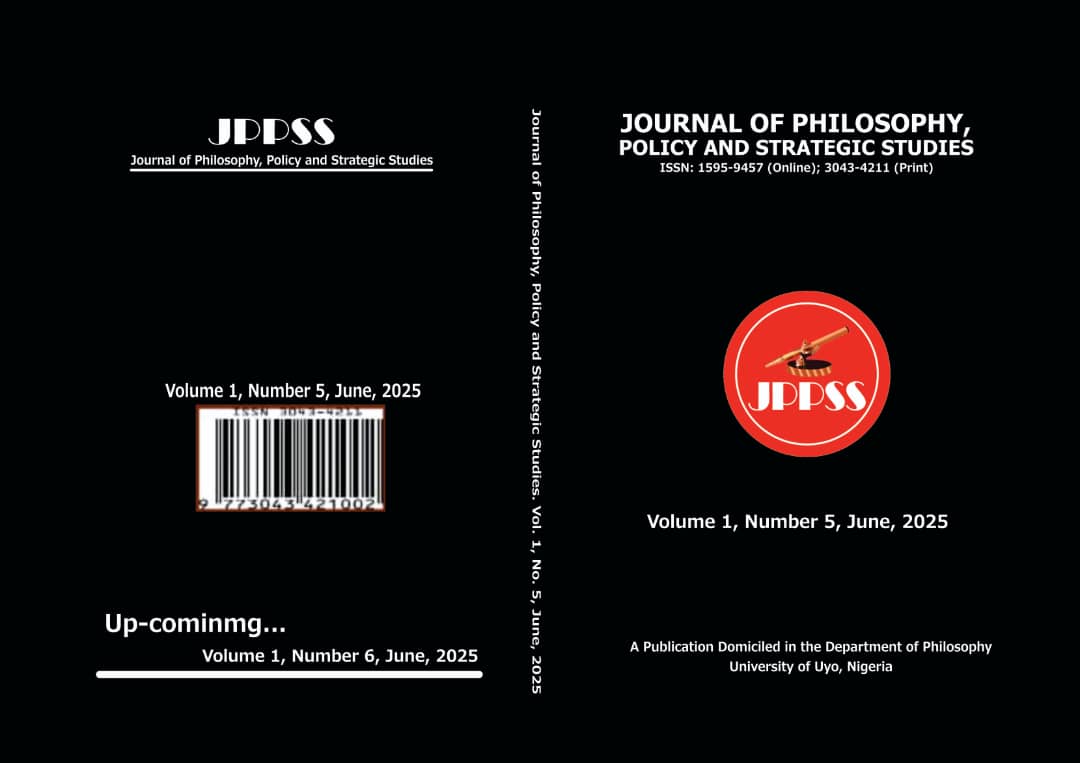RATIONALIZING CHARLES BEITZ’S NOTION OF GLOBAL JUSTICE: LESSONS FOR CONTEMPORARY POLITICAL DISCOURSE
Solomon Terungwa Gbagir 1
Kenneth Ochuko Sodje 2
Department of Religion and Philosophy, University of Mkar, Mkar- Nigeria 1
Augustinian Institute, Makurdi, Benue State 2
Corresponding Email: terungwasolomon@gmail.com 1
Abstract
The current global order perpetuates systemic injustices, including economic disparities, human rights violations, and environmental degradation, which compromise human dignity and well-being. This paper endeavours to substantiate Charles Beitz’s concept of global justice. The study is a qualitative research. Data were obtained from books, scholarly journals, and online sources. This study employed expository and critical methodologies. The expository method conveyed the notion of global justice in Charles Beitz’s philosophy, whilst the critical method evaluated same. The paper identified several concerns of global injustices, including pervasive poverty, forced migration and refugee crises, and inequitable access to healthcare, education, and technology. Moreover, challenges such as global pandemics, terrorism, and nuclear proliferation present substantial risks to international security and stability. Charles Beitz contended that the ideals of justice ought to be implemented on a worldwide scale, rather than restricted to geographical boundaries. He advocated for a cosmopolitan framework of global justice, highlighting the moral equality of all individuals globally and asserting that human rights and distributive justice ought to be universally enforced. He also championed reforms to international institutions, like the United Nations, to enhance their efficacy in advancing global justice and safeguarding human rights. Although he is critiqued that his global justice approach is not only impractical but also violates the rights of individuals to their own property and resources. Regardless, the study concluded that his work has significantly influenced the field of global justice and modern society by challenging the conventional division between domestic and international justice.
Keywords: Economic Inequalities, Cosmopolitanism, Distributive Justice, Global Justice


